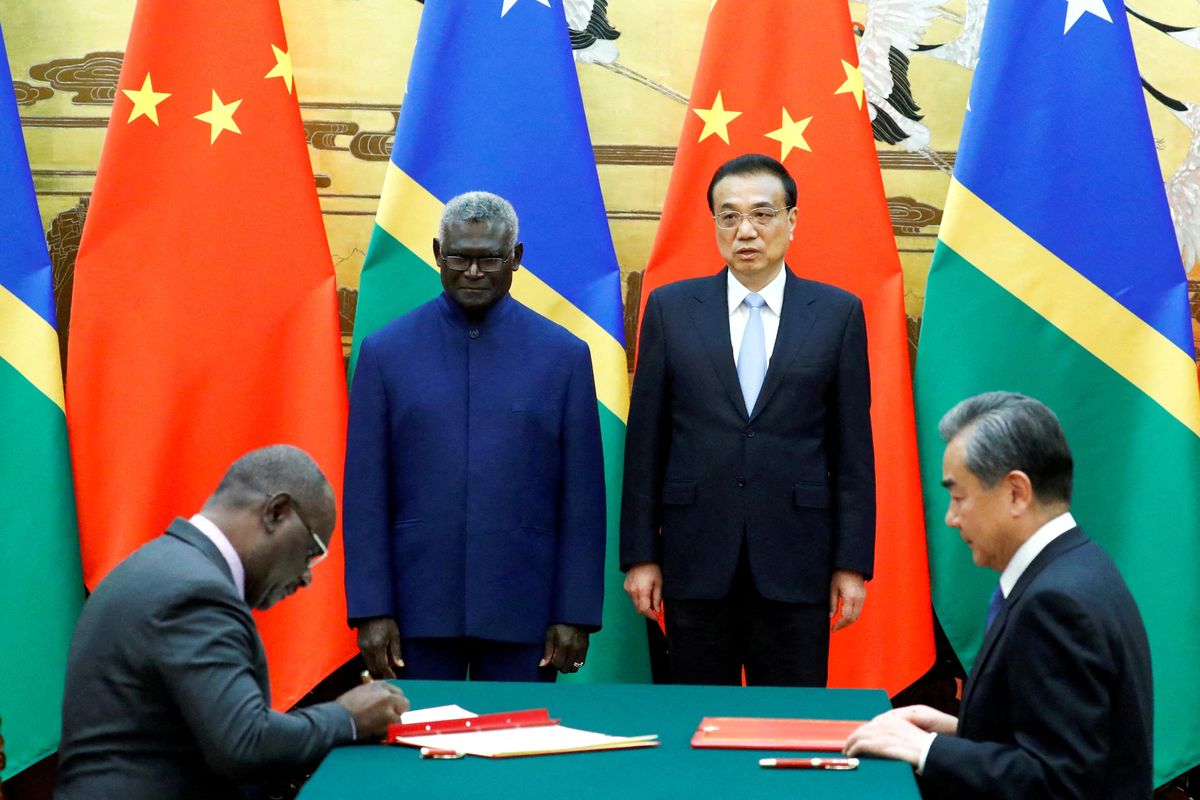China doubles down on Pacific strategy
Barely a month after inking a controversial security agreement with the Solomon Islands, China's top diplomat on Thursday kicks off a whistle-stop Pacific tour to a whopping eight countries in just 10 days. Foreign Minister Wang Yi reportedly aims to get them to join a China-led regional security and cooperation framework that Western countries fear will allow Beijing to gain a military foothold in a region long-neglected by the US and its allies. The Chinese, for their part, insist no such deal has been offered and that the countries Wang plans to visit are just "good friends." But Australia and New Zealand aren’t buying it: the Aussies have dispatched their newly minted foreign minister to Fiji in the first stop of a roadshow to counter China in the Pacific, while the Kiwis have announced plans to extend their troop deployment in the Solomon Islands for another year. What's more, both Australia and New Zealand — along with the US — are worried about China's plans for the mega-remote island nation of Kiribati, which has few inhabitants, vast territorial waters, huge strategic value … and switched recognition from Taiwan to China in 2019.
Russia offers food help – for a price
As the war in Ukraine pitches the world closer to a global food crisis, Russia says it’s ready to help establish UN-brokered food export corridors from Ukrainian ports — but there’s a catch. In exchange, Moscow wants the US and EU to lift sanctions that they’ve imposed on Russia over Vladimir Putin’s invasion of Ukraine. Moscow’s demand puts the rest of the world in a tricky position. There are currently millions of tons of grain and oilseeds trapped in Ukraine because of Russian naval blockades and mines that each side accuses the other of planting. The UN is warning that high food prices and shortages caused by the conflict could push as many as 1.7 billion people into poverty and hunger this year. But any attempt to establish a corridor requires either Kremlin support or Western warships to accompany Ukrainian export vessels, risking direct conflict with Russia. Is it worth it to relax the pressure on Russia to help feed the world? No easy answers here. In the meantime, Russia says it’s restored operations at the shallow-water port of Mariupol, which Russia took control of last week. The larger deep-water port of Odesa, however, remains under Ukrainian control and a Russian blockade.








